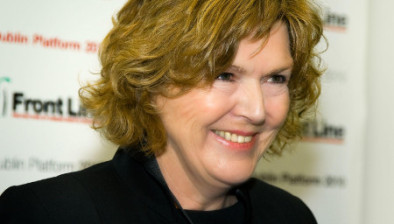Human rights commission sets out strategy for next three years

Emily Logan
The Irish Human Rights and Equality Commission has set out its strategic priorities and focus for 2019-21.
The Commission’s second Strategic Statement sets out four strategic priorities: to protect the rights of individual persons who face the greatest barriers to justice; to influence legislation, policy and practice; to engage with key organisations to address discrimination and human rights abuses; and to raise the quality and broaden the extent of the dialogue on human rights and equality issues.
The Commission has also committed to focusing its work over the next three years on four areas:
- Promoting people’s access to justice
- Advancing Socio-economic rights in the areas of housing, health and decent work
- Combatting racism and promoting intercultural understanding
- Disability Rights
Speaking at the launch, Chief Commissioner Emily Logan said: “We may be forgiven for thinking that the European Union – the most successful peace project in history – had created unassailable norms for the Continent. Recent developments, not least in relation to the peace treaty that is the Good Friday/Belfast Agreement, and the implications of Brexit for the rights of people in Britain and Northern Ireland, should warn against any such complacency.
“At a time when the international political discourse on protectionism is growing – it is important for Ireland to remember its longstanding commitment to internationalism, to human rights and to ensure that our international reputation is matched by our actions here at home.”
Ms Logan also specifically voiced concerns in relation to access to healthcare around the Healthcare (Regulation of Termination of Pregnancy) Act 2018.
She said: “We have heard how operating within such a new legal framework is challenging for practitioners and policy makers, but we must be vigilant that the rights of patients, now on the statute books, are being vindicated.
“As a Commission, we have a mandate to keep policy and legislation under review. We will be monitoring the implementation of the new legislation, particularly in relation to reports of the barriers to access to legal terminations. I want to state clearly that the Commission will act, in whatever capacity is available to it, to support women and girls to vindicate their rights.”










